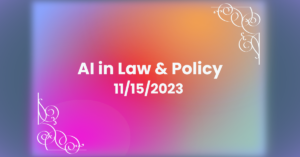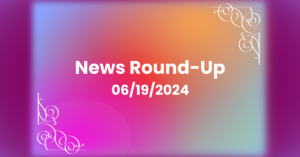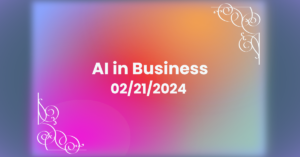Will AI Content Generation Make Writers Obsolete?
The latest advancements in AI content generation have sparked much excitement, but there’s also plenty of fear going around. Will these innovations replace human writers? While generative AI still is new to mainstream users, tools like ChatGPT are already writing essays, articles, and even screenplays. It’s only natural for writers to be concerned.
As automation replaced workers in 19th-century textile factories or 20th-century automotive plants, we fear generative AI will render the 21st-century creator obsolete.
If you’re nodding along, we have great news for you. AI will not replace writers because we have something machines can’t reproduce: our humanity.
Why we still need human writers in the age of AI content generation
Despite the advancements in AI, human writers will continue to play a vital role in the creative process. Here’s why:
AI is predictive, not creative
When we hear the phrase “AI content generation,” it might give the impression that these intelligent tools are creating content from scratch. However, in reality, AI is merely a predictor and mimic.
Engineers train generative AI models based on vast amounts of human-created material. It analyzes and learns from this existing content to predict and generate new work. Without ongoing input from human creators, AI can only regurgitate the same concepts over and over again.
People are the only way to infuse AI-generated content with fresh perspectives and originality. As creators, we have the ability to bring new ideas to the table, challenge existing norms, and push the boundaries of innovation. Our unique experiences, emotions, and insights shape the content we produce, setting it apart from the repetitive nature of AI.
Ultimately, AI enhances creativity but can never replace human insight.
Bias is present in AI
AI content generation often lacks cultural relevance because it relies heavily on existing works. Historically, much of this data is outdated or culturally insensitive. In fact, some studies show that generative AI can be downright bigoted, with both text-generating and image-generating tools showing strong racial, gender, and ethnic bias.
This is one of the challenges of today’s generative AI, and human creators play a crucial role in overcoming it.
Cultural relevance and open-mindedness are essential in creating content free from prejudice. It helps to foster a sense of understanding, empathy, and relatability. Unlike AI, human writers have the advantage of being able to draw from their personal experiences and insights, allowing them to create content that resonates with diverse audiences.
Additionally, people can push boundaries and challenge existing norms, introducing new ideas and perspectives that AI may not be able to generate on its own. This adds a unique and fresh dimension to the content, making it more engaging and thought-provoking, certainly, but also relevant to the times.
In a world where representation, diversity, and respect are celebrated and valued, human writers are vital.
AI needs a human catalyst
No matter how proficient AI becomes, it still requires a human catalyst. Every creative endeavor, whether writing articles, coding software, composing music, or rendering photographs, begins with a spark—an idea that’s born from a unique perspective.
As this article by the World Economic Forum points out, AI is similar to a calculator, which doesn’t replace mathematicians, but streamlines their work. The calculator performs calculations, sure, but it requires a human to write the equation.
The initial concept, the emotional depth, and the creative vision that people bring to their work are irreplaceable. The human mind alone can imagine new possibilities, break boundaries, and think outside the box.
AI content generation may assist in the execution of these ideas, but it cannot replicate the initial inspiration. It cannot mimic the passion, the intuition, and the understanding that humans bring to their creative endeavors.
People need authentic connections
As humans, we have an innate desire to connect with others and to be moved by their stories. While AI content generation assists in the composition of stories, it often fails to truly understand the depth of human experiences such as triumph, trauma, or personal growth. These types of stories are the ones that have the power to move us and make us feel seen.
The human perspective is essential in creating content that resonates deeply with audiences. Our unique ability to tap into our emotions, to empathize with others, and to reflect on our journeys allows us to create material that fosters connection. It’s through our own vulnerabilities and growth that we can inspire and move others.
So, while AI may have its place in assisting with the technical aspects of content creation, the human element will always be vital.
The craft of writing and Quillbee
The term “writer” is a misnomer. The craft isn’t in typing the words but in the ideas, perspectives, and creativity. Even with AI at our fingertips, all of that remains in complete human control. AI content generation just makes it easier to express ourselves.
When you make this realization, Quillbee becomes an astonishing — and people-first — resource. Our Content Brief tool sets us apart from other generative AI programs because it’s purposefully engineered to capture your singular perspective, enabling you — the writer — to create content that embodies your voice, your experiences, your humanity.
Take Quillbee for a free spin today and you’ll see precisely what we mean. Quillbee doesn’t replace you, and it won’t make you obsolete. Instead, it elevates your point of view, allowing you to share it and connect authentically with your audience.







